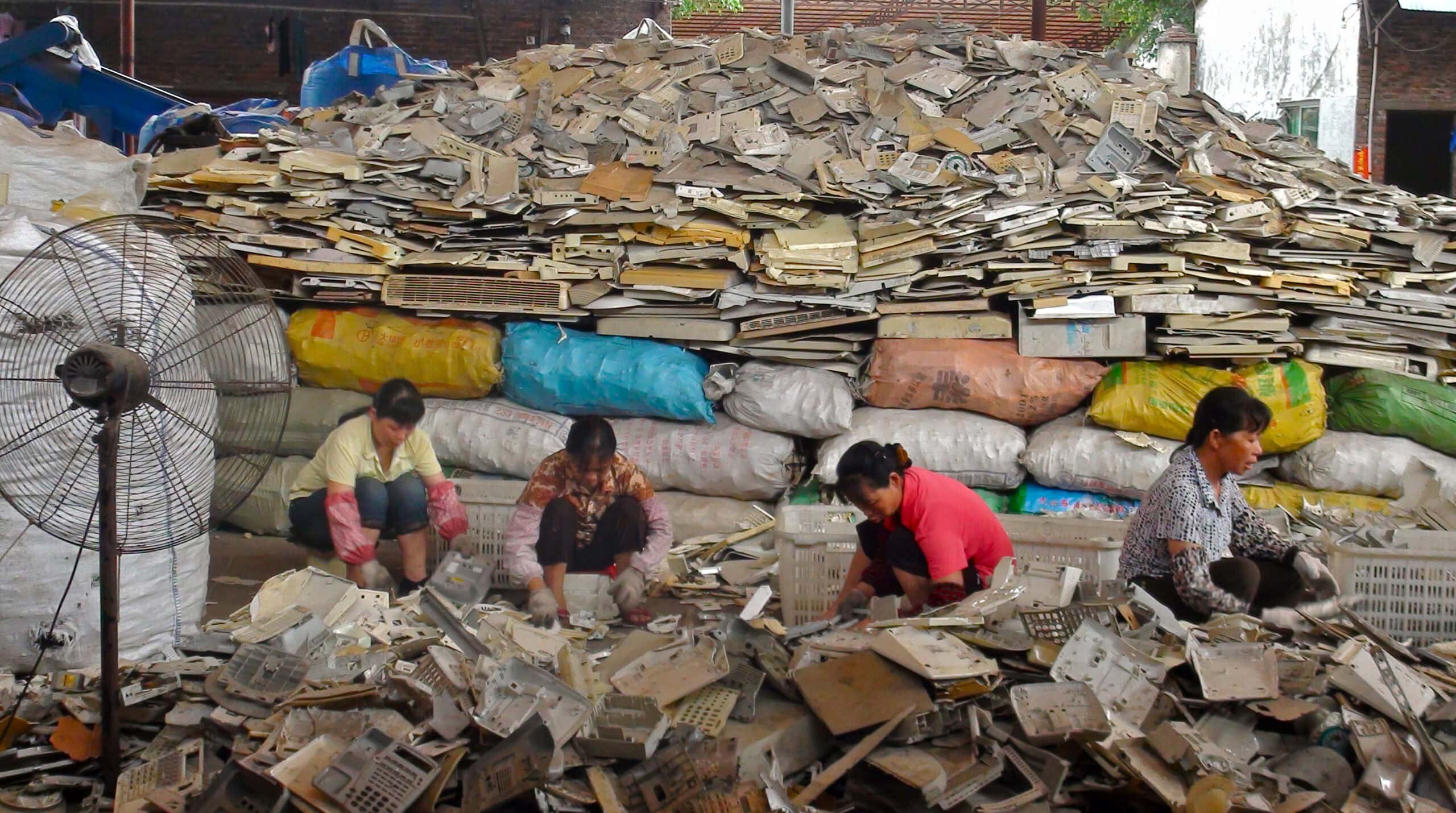Sessions

Managing Risk: Pollution Prevention and Management - Addressing E-waste through Tracking, Traceability and Circular Approach
![]()
DAY
Thursday, 18 February 2021
TIME
13:00 – 15:00
Co-convened in partnership with the Secretariat of the Basel, Rotterdam and Stockholm Convention & UNEP’s Private Sector Unit
In the past few decades, the consumption of electronics has penetrated nearly every aspect of our daily lives, so it is no surprise that the production and use of electronic products has sky-rocketed, leading to the generation of massive quantities of end-of-life electronics – e-waste.
According to the UN’s Global E-waste Monitor of 2020, of the 53.6 million metric tonnes (Mt) of e-waste generated worldwide in 2019, only an estimated 17.4 per cent was recycled. While this is an improvement of 21% in just five years, this means we do not know where the majority of this waste is disposed of, and there is a risk that much ends up in countries with no facilities for recycling and disposing such wastes. Efforts to reverse this trend need our attention more than ever before.
Electronics contain valuable materials, including those of strategic value such as indium and palladium; and precious metals such as gold, copper and silver. These materials can be recovered and recycled, thereby serving as a valuable source of secondary raw materials, reducing pressure on scarce natural resources, as well as minimizing the overall environmental footprint.
The negative effects of e-waste on human health and the environment continue to be scientifically documented in many regions of the world. E-waste exported to developing countries can be subject to poor recycling techniques such as open burning leading to inhalation of toxic fumes loaded with persistent organic chemicals (POPs) and other substances. This results in long-term contamination of nearby land and rivers, and consequently the food chain, and POPs may eventually end up as contaminants in foods destined for human consumption.
The environmentally sound management of e-waste and the transboundary movements of e-waste or used equipment may serve as a big lever in the direction of circularity by reducing the need for mining of materials of strategic value and increasing recycling and resource recovery as well as creating new market opportunities, jobs and sources of income.
The Extended Producer Responsibility (EPR) schemes, one of the approaches encouraging producers to bear the responsibility for the collection and management of their products when they reach end-of-life, have not been adopted in many developing countries.
The tracking and traceability of e-waste require better implementation of policies, innovative systemic and technological solutions involving governments, private sector, academia and the civil society, whereby the environmental sound management of e-waste is ensured, and a circular approach is encouraged without jeopardizing human health and the environment.
The session will demonstrate ongoing efforts by different stakeholder groups and explore innovative approaches to sustainable e-waste solutions.
Session will examine:
- E-waste has been an issue of concern for a number of years. Why does it continue to be a problem despite numerous efforts by governments, industry, civil society and international organizations?
- What are the main drivers of e-waste for becoming a global environmental challenge?
- What policies and regulatory mechanisms are best suited to tackle e-waste? How to deal with the informal sector and informal practices to manage e-waste?
- How does the sustainable management of e-waste contribute to the circular economy? How to avoid the loss of valuable resources contained in e-waste?
- Can regional cooperation provide solutions to support developing countries lacking capacities for dealing with e-waste?
- What role industry can play in dealing with e-waste in a sustainable way? Are there innovative solutions to e-waste from the manufacturing /design perspective?
Key contributors: The Secretariat of the Basel, Rotterdam and Stockholm Convention, UNEP’s Private Sector Unit, Federal Ministry of Environment of Nigeria, International Solid Waste Association, Ministry of Energy, Science, Technology, Environment and Climate Change of Malaysia, the World Business Council for Sustainable Development, the International Telecommunication Union, the E-Waste Coalition, the Africa Institute, E-Waste Exchange, World Resource Forum, Tsinghua University, WEEE Forum, Environmental Protection Agency of Ghana, IPEN, Federal Office for The Environment of Switzerland, Ministry of Foreign Affairs, International Trade & Worship of Argentina, Ministry of Environment and Forestry of Kenya, Bureau of International Recycling, Health and Environment Justice Support Beveridge & Diamond PC
SPEAKERS
Tbc.


